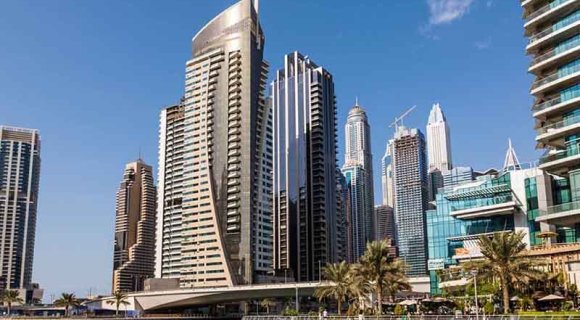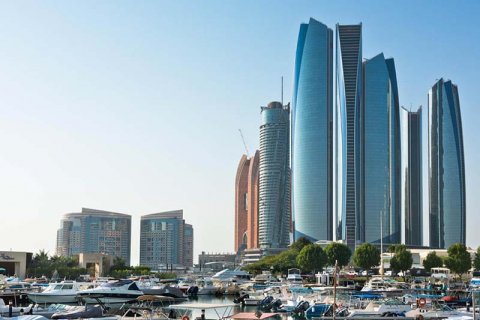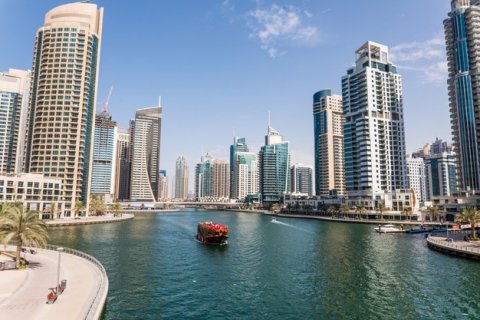
Despite the cosmopolitan nature, economic prosperity, and international significance of the United Arab Emirates, tourist fines in Dubai and other emirates are crucial information that everyone arriving in this country should be well aware of and prepared for.
To avoid troubles, it is essential to understand the laws and customs of the country before packing your bags. While Dubai’s behavioural requirements are more lenient than in other parts of the UAE, strict rules still exist, prohibiting the consumption of alcohol in public places, regulating appearance and interaction with the opposite sex, and imposing other restrictions.
What can result in fines in Dubai? What is forbidden for women in the UAE? We will answer these and other questions in our article.
Content:
- General information about the legal system of the UAE
- General overview of fines and rules for tourists in the UAE
- Alcohol consumption
- Sex outside of marriage
- Narcotic substances
- Taking photos and videos
- Violations on public transport
- Traffic violations
- Appearance
- Other prohibitions
- Recently cancelled penalties
- Conclusion
General information about the legal system of the UAE
The governmental structure of the UAE is a federal monarchy consisting of seven emirates: Abu Dhabi, Dubai, Sharjah, Ajman, Umm al-Quwain, Ras al-Khaimah, and Fujairah. Each emirate has a certain degree of autonomy, its own laws, and internal administration. The head of the state is the Emir of Abu Dhabi, and the government is led by the Emir of Dubai.
Each emirate has its own set of laws and is entitled to prioritise and choose punitive measures at its own discretion. However, they all still comply with federal legislation.
The Emirates is an Islamic state where residents strictly adhere to Sharia. The decision of authorities to open their doors to foreign cultures to facilitate the country’s development initially faced resistance among the local population. However, over time, locals understood its necessity. To preserve patriarchal order and prevent the spread of unacceptable norms of behaviour, many amendments were made. This allowed preserving traditional values.
It is challenging for authorities to strike a balance between adhering to the laws of Islamic culture in society and meeting the expectations of travellers with a more liberal lifestyle. To make sure European and American visitors enjoy comfort and freedom, many local restrictions do not apply to hotels, private beaches, nightclubs, and parties. In case of minor offences, the police may issue a warning or a fine, the latter rarely applied. However, there are several misdemeanours that will inevitably result in punishment.

General overview of fines and rules for tourists in the UAE
Regardless of the purpose of your visit to the country – whether you are buying property in Dubai, handling business matters, or just holidaying – it is crucial to know how to behave, what you can be fined for in Dubai, and what actions could lead to imprisonment in the UAE.
Familiarise yourself with the list of prohibited actions so that you avoid trouble and do not cross the line.
Alcohol consumption
In the United Arab Emirates, alcohol consumption is an unlawful act and is prohibited by legislation due to prevailing religious and cultural values in the country.
Drinking alcoholic beverages and being in a state of alcohol intoxication in public places entail criminal punishment: 6 months of imprisonment or a fine of AED 2,000 ($545).
However, the rules for tourists in Dubai do not prohibit drinking in hotels, nightclubs, or bars, provided you take a taxi home immediately after the party. It is worth noting that no one specifically pursues intoxicated individuals. Travellers often allow themselves to be out at night even after consuming alcohol, and as long as they behave decently, the police turn a blind eye.
Until November 8, 2022, tourists were prohibited from purchasing alcohol. This rule has now been abolished in all emirates except Sharjah, the most conservative emirate.
To buy alcohol in Dubai, laws require obtaining a special licence. You need to present your passport and submit an application. Once it is approved, you can freely purchase alcohol for 30 days. In other emirates, your passport may be requested to confirm you are over 21 years old.
How much alcohol can be brought into Dubai? One tourist can bring up to 2 litres of strong spirits, wine, or beer into the emirate.
In Ajman, Umm al-Quwain, Fujairah, and Ras al-Khaimah, licences were abolished from November 8, 2020, and alcohol is freely sold there.
Sex outside of marriage
During the rule of Sheikh Zayed, sexual interactions and cohabitation outside of marriage were punishable by one year in jail in the UAE. After 2004, cohabitation ceased to be a criminal offence, but sex outside of marriage is still prohibited.
As with alcohol, authorities do not actively pursue fornicating tourists. However, this does not mean that openly engaging in sexual relations is acceptable in public places.
Narcotic substances
Any involvement with narcotics (consumption, possession, and distribution) on the territory of the UAE is prohibited and punishable. Since 2022, drug use has been equated to a disease – imprisonment has been abolished, and compulsory treatment in specialised rehabilitation centres has been introduced.
Drug possession results in a fine of AED 10,000 ($2,723) and/or imprisonment for up to 4 years. Distribution is punishable by the most severe punishment, which is life imprisonment.
Attempting to import prohibited substances (even by transit passengers) is strictly prohibited. Airports are equipped with highly sensitive devices that easily detect the slightest traces of drugs in luggage and carry-on baggage. Law enforcement authorities are also entitled to conduct blood tests on passengers causing suspicion.
It is important to mention medicinal drugs that may contain substances considered narcotics within the state’s territory. Most often, these are pain relievers. If you have a prescription for their use from a doctor, be sure to take it with you on your trip.
Since last year, the punishment for importing medicinal products with such components has been mitigated. Now, you do not have to pay fines in Dubai – if it is your first such offence, you may be forgiven.
Taking photos and videos
Taking a photo or video of a person without their prior consent is equal to interference in personal life and is punishable by 7 years of imprisonment. However, taking pictures in public places is not prohibited. It is strictly forbidden to photograph local women. The same applies to posting photos on social media without approval – this is punishable by 6 months of imprisonment and a fine of up to AED 500,000 ($136,132).
You also cannot shoot:
- Government buildings;
- Strategic facilities;
- Mosques;
- People performing prayers.
Violations on public transport
The most convenient mode of transportation in Dubai is the metro. However, unlike in other countries, passengers here are required to adhere to a greater number of rules and norms.
Fines for violating metro travel rules are as follows:
| Violation | Fine (AED) |
|---|---|
| Loud, disruptive behaviour | From 100 |
| Sleeping at the station | 300 |
| Boarding the wrong carriage | 100 |
| Transporting animals | 100 |
| Carrying alcoholic beverages | 500 |
| Smoking, drinking water and beverages (even non-alcoholic), chewing gum | 100 |
| Sitting in seats designated for pregnant women and disabled passengers | 100 |
| Misusing the emergency buttons | 2,000 |
It is important to explain what boarding the wrong carriage means. In the emirate, carriages are divided into silver (for everyone), gold (higher comfort, higher ticket price), and pink (women and children only). Tourists often make mistakes, and usually, they are forgiven and politely asked to move. However, if you intentionally try to deceive – buy a gold class card and use it (already used) several times – the inspector will detect this with a special device and impose a fine.
The most common violation on the bus is fare evasion and distracting the driver from the road.
Traffic violations
Law enforcement closely monitors compliance with traffic rules by all road users and imposes fines on violators. On average, fine amounts range from AED 400–500 ($109–$136), but they can reach AED 3,000–5,000 ($817–$1,361).
Here are the most common traffic violations:
| Violation | Fine (AED) |
|---|---|
| Driving without headlights during nighttime | 100–400 |
| Transporting a child under 10 years of age without a child seat | 400 |
| Failure to maintain a safe distance | 400 |
| Failure to wear a seat belt | 400 |
| Smoking/using a mobile phone while driving | 200–800 |
| Stopping a vehicle on the highway without reason | 500–100 |
| Throwing rubbish out of the window | 500–1,000 |
| Wrong-way driving | 600 |
| Running a red light | 800–1,000 |
Exceeding the speed limit by more than 80 km/h results in licence suspension and confiscation of the vehicle. If the driver was under the influence of drugs or alcohol, they will inevitably be arrested.
Appearance
What else should you know before travelling to Dubai? Tourist clothing should not be too revealing or provocative. This is an unwritten rule that should be adhered to.
Avoid wearing clothes that are:
- Too short, tight, or see-through;
- Made from fabrics that reveal underwear;
- Revealing the back, cleavage, or midriff.
Women dressed provocatively will not be allowed into public places. Ideally, clothing should cover the body from shoulders to knees.

Other prohibitions
There are also a number of unacceptable forms of behaviour that foreigners in the UAE should avoid:
- Talking loudly in public places;
- Speaking in raised tones/yelling;
- Using obscene language and gestures;
- Flirting, talking, and touching local women. If you need help, approach a Muslim man;
- Touching men (unless they initiate it);
- Staring at people doing namaz (praying);
- Religious propaganda.
Recently cancelled penalties
Of late, the following is no longer punishable:
- Smoking electronic cigarettes;
- Clothing and items of Israeli origin;
- Attempted suicide (previously it was an offence that was prosecuted. Now individuals go through mandatory treatment);
- Accidental bodily injury during the provision of first aid.
Conclusion
It is important to emphasise that the UAE strives to ensure safety, order, and compliance with laws on its territory. Fines imposed on violators, including tourists, are entirely justified. Local laws and regulations apply to all citizens and visitors to the country, and breaking them can have serious consequences.
When planning a trip to the UAE, carefully familiarise yourself with the rules and norms of behaviour to avoid accidental violations and complications during your trip. Observing the moral, ethical, and religious traditions of the country is a sign of respect for the local culture and ensures comfortable and harmonious interaction between tourists and the native population.
To find and safely purchase an apartment in Dubai, use the customisable search on Emirates.Estate! Explore current offers from the country’s largest developers, study detailed information about properties, and make informed investments in the future!













































